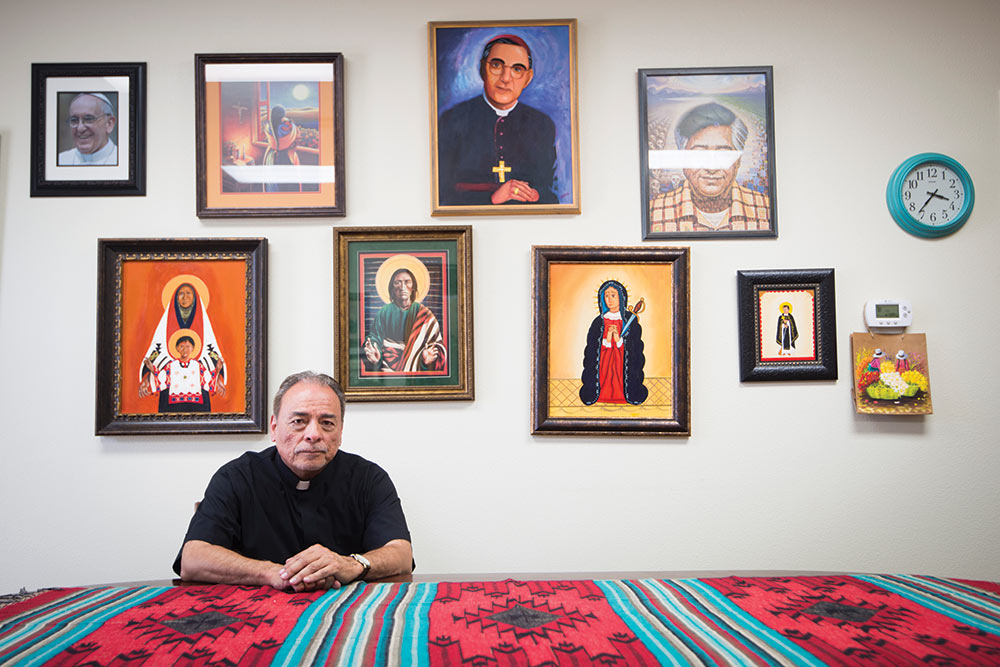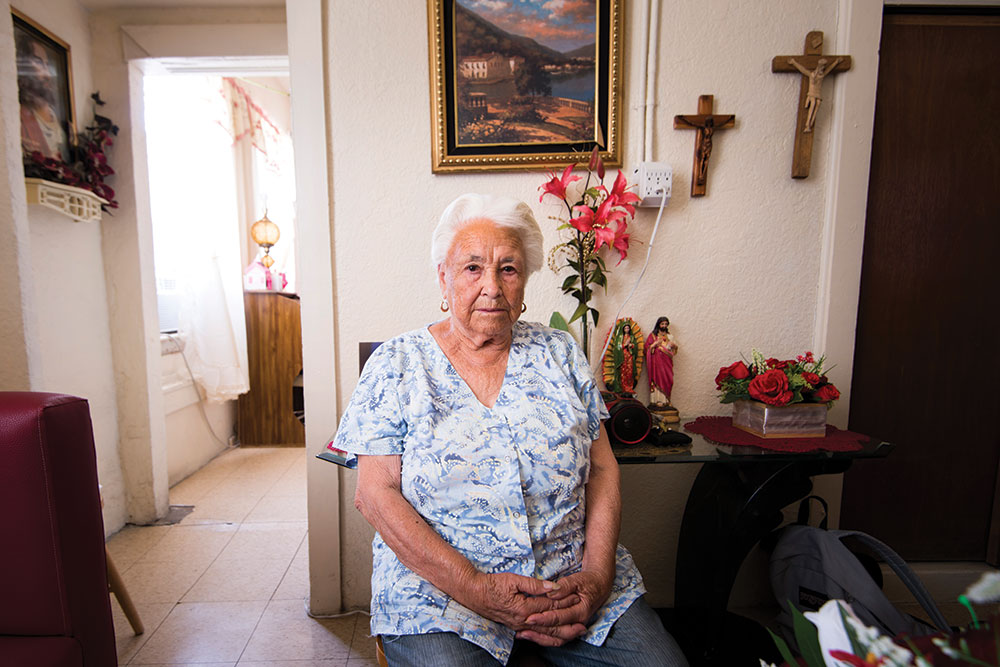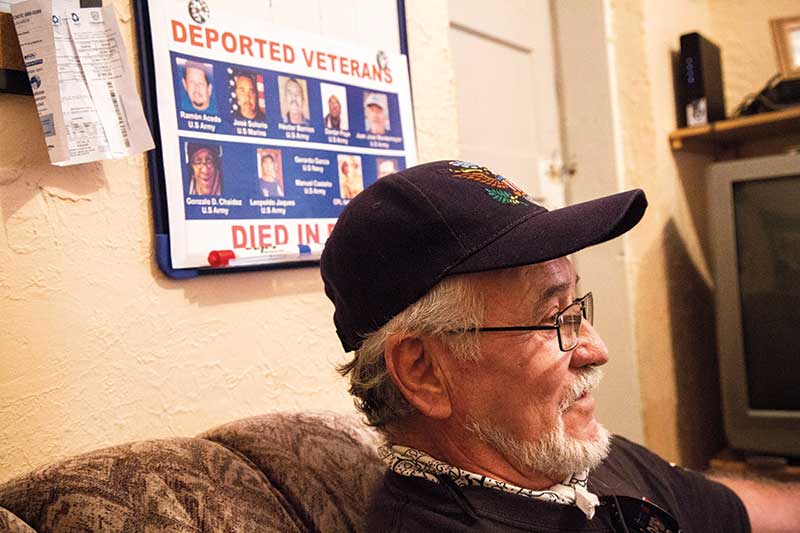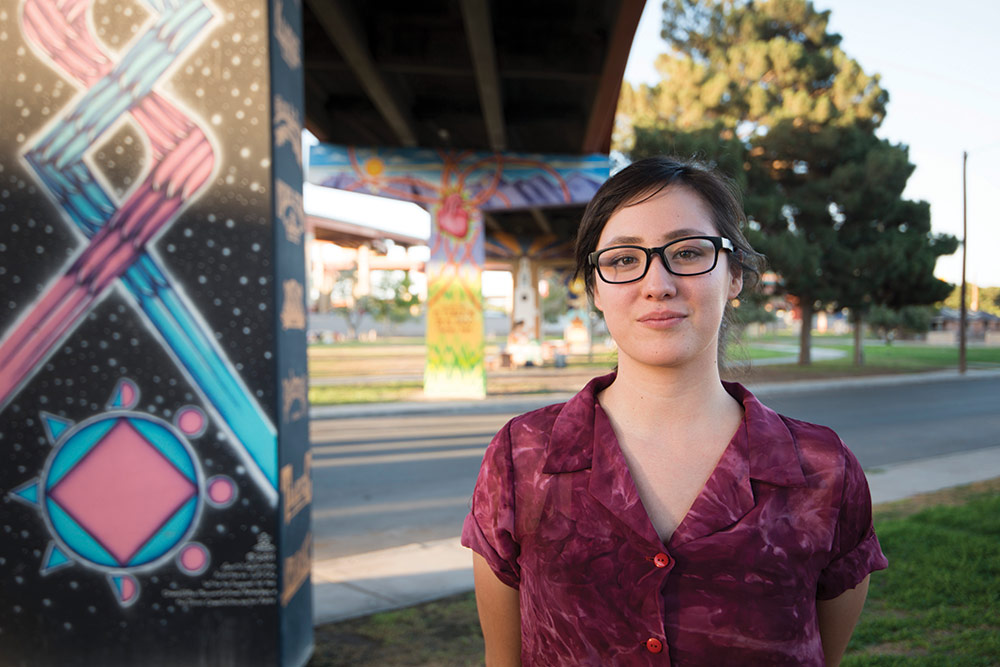Moral courage in the borderland
Students took part in the Moral Courage Project and traveled to El Paso, Texas, and Juárez, Mexico, to interview residents living on the border. Here, we share their stories. Photos by Maura Parker, Glenna Jennings
‘They suffer, we suffer’

Monsignor Arturo Bañuelas is pastor at St. Mark Catholic Church in El Paso, Texas. He challenges his parishioners to live their faith through action rather than solely through prayer and piety. Among the new ministries he’s initiated is Ministerio RICO, which hosts detained unaccompanied immigrant minors awaiting deportation; it is named for the pastor’s 11-year-old nephew, who was killed in Mexico.
"We focus on being a missionary community. You don’t come to Mass to be Catholic, you go serve to be Catholic. ... Having the immigrants [come] here to the parish was a blessing. It changed people’s lives because we heard their stories. And they are now part of changing the narrative about the border and about immigrants. ... And the narrative is, “They’re children of God. They’re our family. They’re a part of us. We’re a part of them. They suffer, we suffer.” The solution is going to be that we listen to each other’s stories as family. ... And I think that’s a Gospel way to live your spirituality."
‘Aqui estoy’

Antonia “Tonita” Morales, 90, has lived in the Duranguito neighborhood of El Paso, Texas, since 1965. She and her neighbors worked with the police and city to reduce crime and create a safe, affordable place for families to live. Today, they are fighting the city to prevent it from building a 15,000-seat arena in their neighborhood.
"This was the first neighborhood in El Paso. This is our roots. I don’t have any education, but I don’t believe that it is legal or constitutional to demolish the first neighborhood of a city to put a sports arena up. ...
"I am from the border and I love the border, and not just El Paso, but Juárez. ... My dream for Duranguito is to preserve it and to preserve its history. I believe that the children, the children who are alive now and those who will be born in the future, have a right to know their history and to know where their city began. ...
"I am here. I am here. I am here. (Aqui estoy.)"
*translated
‘I feel proud’

While living in the U.S. as a permanent legal resident, Francisco Lopez was drafted to fight in Vietnam, returning from war with PTSD. He was deported to Mexico after attempting to buy illegal drugs to self-medicate. He operates a support house for exiled veterans, who after their deaths can return to be buried on U.S. soil.
"When President Kennedy got killed, it really hurt my heart, you know? I always do something for the United States. When I got drafted, I didn’t think twice about going to Vietnam. I wanted to try to help even if I didn’t speak any English at all. I wanted to do something to help this country, since they adopted me as an immigrant. That’s the way I feel. I feel proud to be a Vietnam veteran. ...
"I hope for them to let us go back so we can go visit our families. And I hope that we can go there and get medical treatment from the veteran hospitals. A lot of veterans are dying here from a lack of medical help."
‘Who else?’

Ursula Avila is a founding member of Soñados Juntos, the El Paso, Texas, affiliate of United We Dream. As a queer, undocumented student, Avila describes having lived in a “double closet.” Today, she discloses her status openly and with her peers, telling people like her conoce tu poder, or “know your power.”
"I tell my parents what I’m doing, and they tell me, “That’s dangerous. Don’t do it. You’re outing yourself. You’re talking to the media. You’re giving interviews.” ... But I tell them, “Who else is gonna do it if I don’t?” There are only some individuals who do it and who are giving their stories and that is what encourages other people to do it. ...
"I really believe that, though America has a lot of problems, it is my home. It is what I’ve known my whole life. I know it’s better than what it may seem sometimes. That’s my hope. Knowing that there’s more of us that are thinking of it in a better way and hoping for a better tomorrow, and a tomorrow after that one."